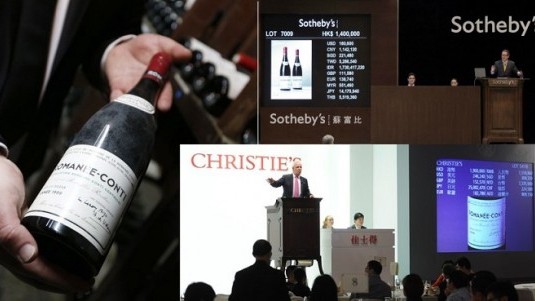Cultural colonization

Have you ever asked yourself whether there is any justification for the fact that the most expensive French wine, Romanée Conti, can cost over 10,000 euros while no Italian wine fetches over 1,000 euros? Or why a bottle of Sassicaia retails for more or less 200 euros whereas a Chateau Lafite can sell for over 2,000 euros? In other words, are French wines really ten times better than Italian ones?
The answer is obviously no and if we take into account intrinsic quality and organoleptic value, a ‘gap’ between the two may exist but it is much smaller. What comes into play here is perceived quality and it is this that determines the value of any wine. This has nothing to do with a reasonable price, at least on this level, nor with a wine’s flavor or its complex and refined aromas. Perception of quality involves exclusiveness, elegance, image and high price. These all play a magical role in deciding what wine to purchase for oneself or to offer to others. The fact that these are almost always French ones has to do with a global cultural colonization that has taken place over the past one hundred years or so. More than on their technical skill, French producers have presented themselves as being exclusive and focused on tradition and quality, preferring to draw less attention to their economic and commercial success. Thus everything is centered in making the consumer feel better, more refined and not only an ‘expert’ on wine but also on life and how to live it. Italian producers, on the other hand, are more direct, more individualistic and less refined.
This does not mean there are not areas and producers in Italy who have sought to copy the French, the Langhe being an example as well as, in part, Montalcino and Franciacorta. However, Italy has been unable to engage in a cultural colonization if not only in a casual and inconsistent way benefitting from the extraordinary network of Italian restaurants around the world. One of Italy’s greatest problems is having to deal with a superficial political class which has never really believed in or given a chance to the country’s wine and food sector. For politicians this sector is only an opportunity for making empty speeches full of hot air and words like “excellence”. Cultural colonization, on the other hand, needs competence and business knowhow together with authentic synergy and teamwork. And it is important to work to ensure that higher prices serve to open a door after which everything else can follow in order to create a widespread image of quality. This entails adopting an efficient promotional system to offer detailed information on small producers and individual winemaking areas.
Last but not least, effective coordination is needed to avoid wasting resources on useless initiatives as is the case today.

 Italiano
Italiano








